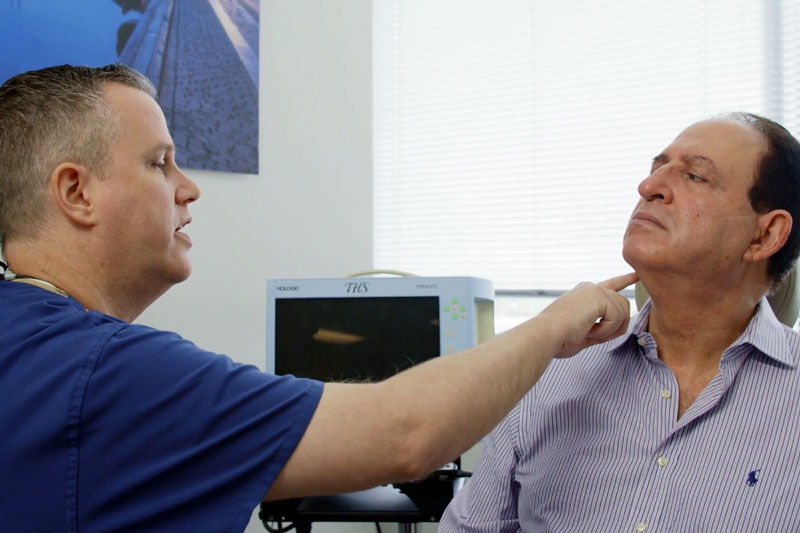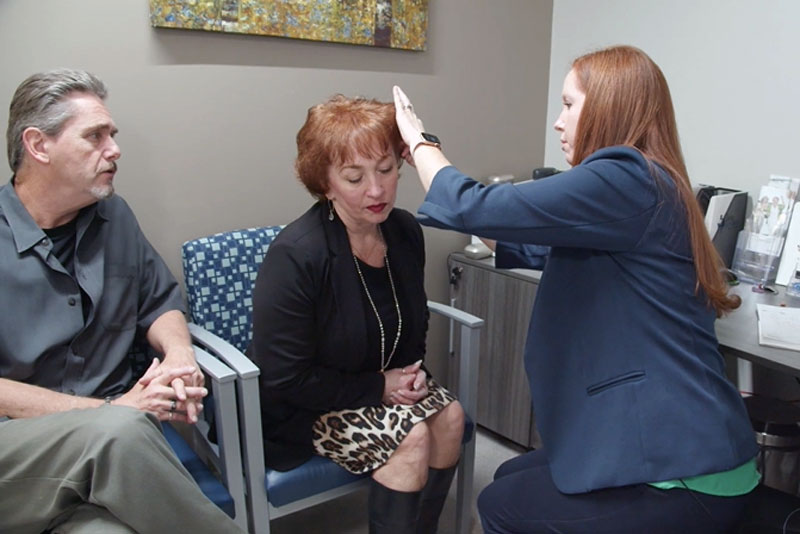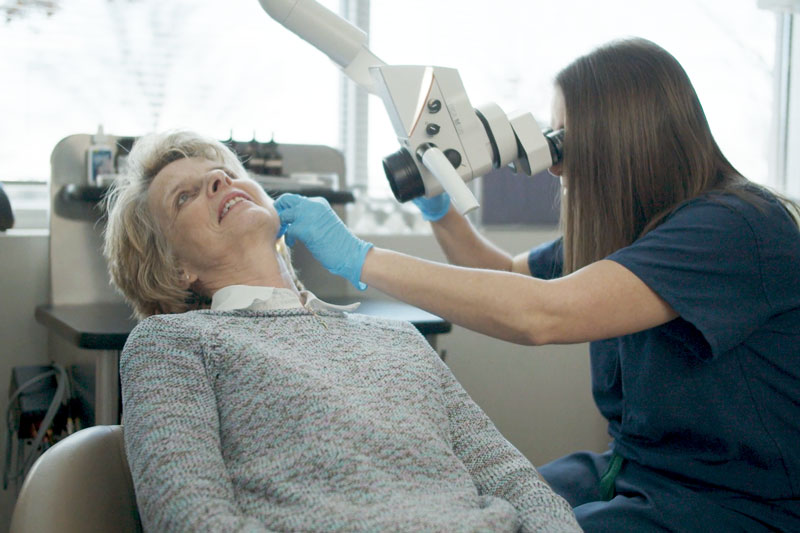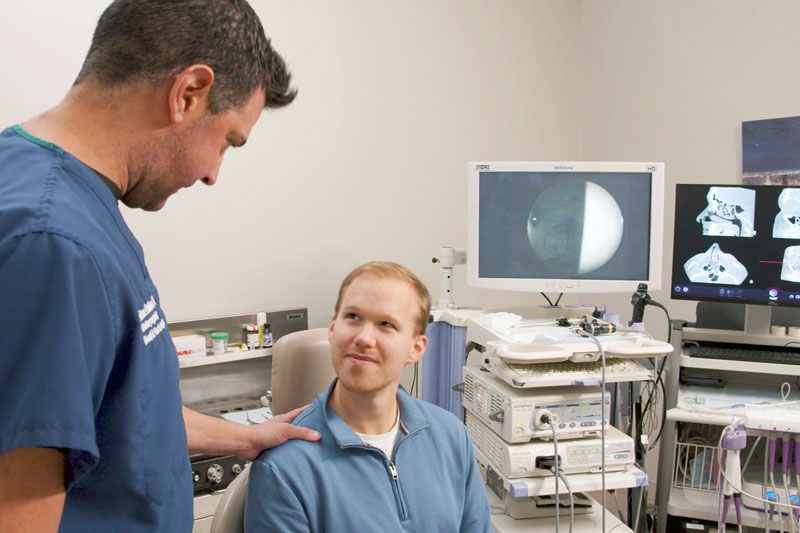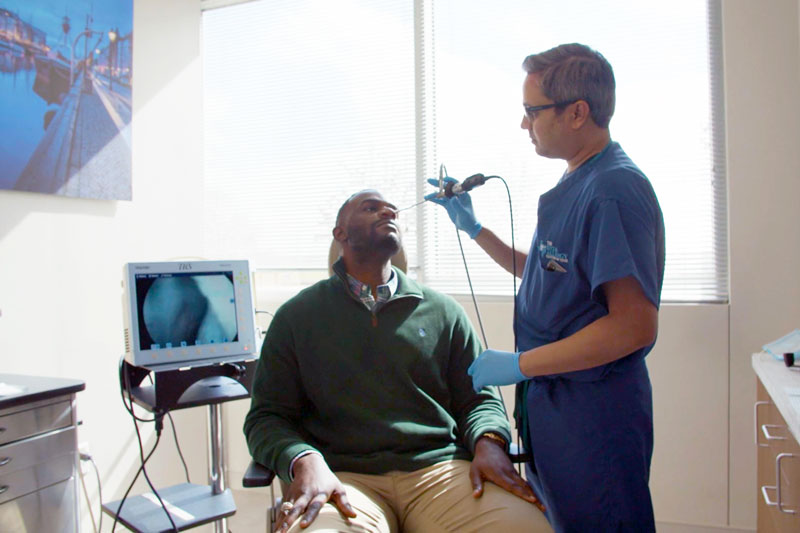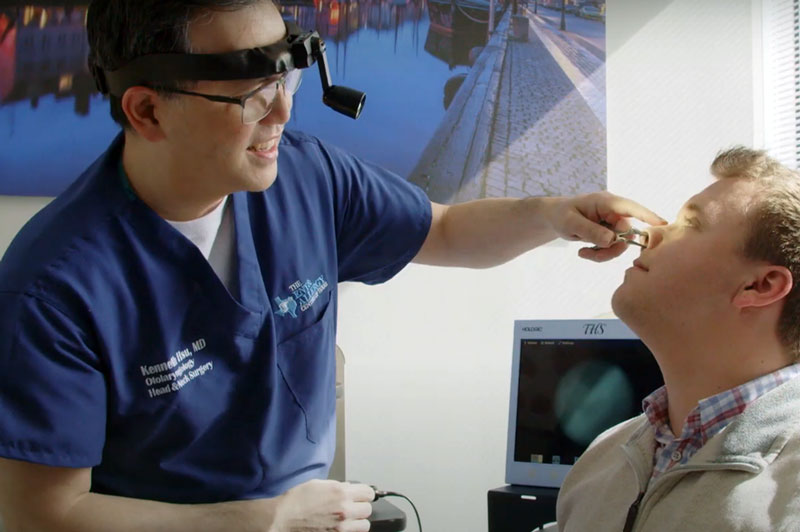What is Sinusitis?

What Causes Sinusitis?

What Are the Symptoms of Sinusitis?
People suffering from sinusitis experience a variety of symptoms such as nasal congestion and discharge, postnasal drip, sore throat, facial pressure and swelling, loss of smell and taste, headache, fever, fatigue, and bad breath.
Complications from untreated chronic sinusitis are rare, but can include asthma attacks, meningitis, and vision problems.

How Is Sinusitis Diagnosed and Treated?
Your ENT physician at The ENT & Allergy Centers of Texas will conduct a physical examination and review your medical history. This includes inspecting your nasal passages for polyps and other abnormalities, as well as checking for inflammation and fluid buildup. To confirm the diagnosis, additional tests such as nasal endoscopy, CT scans, MRIs, or allergy tests may be performed.
The course of treatment will depend on the severity of your sinusitis, as well as whether it is an acute or chronic condition. Saline nasal sprays or rinses, and corticosteroid sprays can be effective in washing your nasal passages and reducing inflammation. Decongestants may provide short-term relief, but prolonged use can worsen the condition. Antibiotics are typically prescribed for bacterial sinus infections.
For long-term relief, antihistamines, nasal steroid sprays or saline washes may be recommended. If your sinusitis is found to be caused by allergies, your physician may prescribe immunotherapy solutions, including allergy shots or drops.
For some patients, sinus surgery may be needed for those with recurrent acute sinusitis or chronic sinusitis. The physician team at The ENT & Allergy Centers of Texas are expertly trained in both minimally invasive in-office surgical procedures as well as more complex surgical options.
Discover our sinus specialists from Frisco to Flower Mound and other locations throughout Texas.







